Zoeken
Filteren op
Type
Labels
Dossiers
Thema's
Afdelingen
Taal
Active filters
1742 zoekresultaten
Zoekresultaten
-
Beleef de Lente 2025: Een ei is geen ei
Als 'Fries om utens' heb ik goeie herinneringen aan het eerste Kievitsei. Dit was elk jaar groot nieuws in de Leeuwarder Courant en op Radio Fryslân. Mijn ouders werden er onrustig van – het eerste ei was gevonden! Kort daarna vond mijn moeder meestal dat het tijd was voor de Grote Schoonmaak.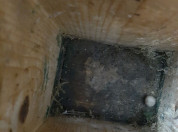
-
Aniek Albers
Research assistant
-
Beleef de Lente 2025: Rondje langs de velden
Onze eigen Beleef de Lente-mees doet het voorlopig kalm aan. Elke nacht slaapt het mannetje in de kast, maar verder gebeurt er weinig. Komt daar snel verandering in? En hoe is de stand van zaken in de andere nestkasten van het NIOO? Tijd voor een rondje langs de velden!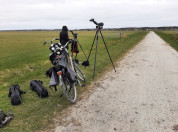
-
AI wordt wild
Hoe werkt de natuur? Hoe functioneren ecosystemen en hoe reageren ecosystemen op veranderingen in het klimaat, in landgebruik, in stikstofneerslag? Er wordt heel veel data verzameld over de natuur. Niet alleen door professionele organisaties maar vooral ook door burgers met verstand van zaken, de citizen scientists. Wat voor rol is er voor AI weggelegd in de manier waarop we die data kunnen gebruiken om ecosystemen te begrijpen; wat is de rol van AI in de wilde wereld van de natuur?
-
Beleef de Lente 2025: Het wel en wee van een nestkast
Wij bij het NIOO doen onderzoek aan koolmezen en gebruiken daarvoor nestkasten. Dat laatste, het gebruiken van die nestkasten, lijkt simpel maar is het niet. Er kan heel veel mis gaat met die kasten...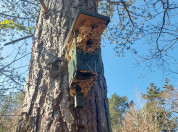
-
Op en neer in het moeras
Verlaag het waterpeil in het moeras tijdelijk en je krijgt er een veerkrachtig, gezonder en biodiverser ecosysteem voor terug. Dat is het advies van ecoloog Kerstin Bouma en haar collega’s van het Nederlands Instituut voor Ecologie (NIOO-KNAW). In de Oostvaardersplassen deed zich een bijzondere kans voor om uit te vissen hoe dit werkt. Op dat onderzoek in de modder en tussen het riet promoveert zij vandaag.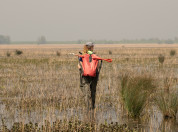
-
Up and down the marshes
Lower the water level in a marsh temporarily and you get a more resilient, healthy and biodiverse ecosystem in return. That is the advice of ecologist Kerstin Bouma and her colleagues at the Netherlands Institute of Ecology (NIOO-KNAW). An extraordinary opportunity presented itself in the Oostvaardersplassen to find out how this works. She defended her PhD on that research in the mud and among the reeds on Friday 4 April.
-
Beleef de Lente 2025: Rupsjes
Jonge Koolmezen hebben rupsen van de Wintervlinder nodig om te kunnen groeien. Maar hoe weten we dat eigenlijk, dat die rupsen er zijn? Klimmen de onderzoekers elke keer hoog de eik in om rupsjes te zoeken en dan te tellen? Nou, ik zal een tipje van de 'rupsensluier' oplichten!
-
Beleef de Lente 2025: Het balletje rolt
Je hebt misschien het idee dat er in koolmezenland niet veel aan de hand is. Onze eigen mees komt elke nacht in de kast slapen, en dat is het dan. Maar vergis je niet, niets is minder waar! Zonder dat wij het doorhebben is er veel gaande. Bijvoorbeeld buiten de nestkast, in de kruinen van eiken...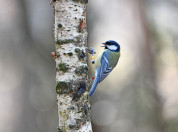
-
Symposium Water Quality Matters (Engelstalig)
This symposium is open to scientists and stakeholders from various disciplines to discuss pressing water quality challenges from both scientific and policy perspectives.
